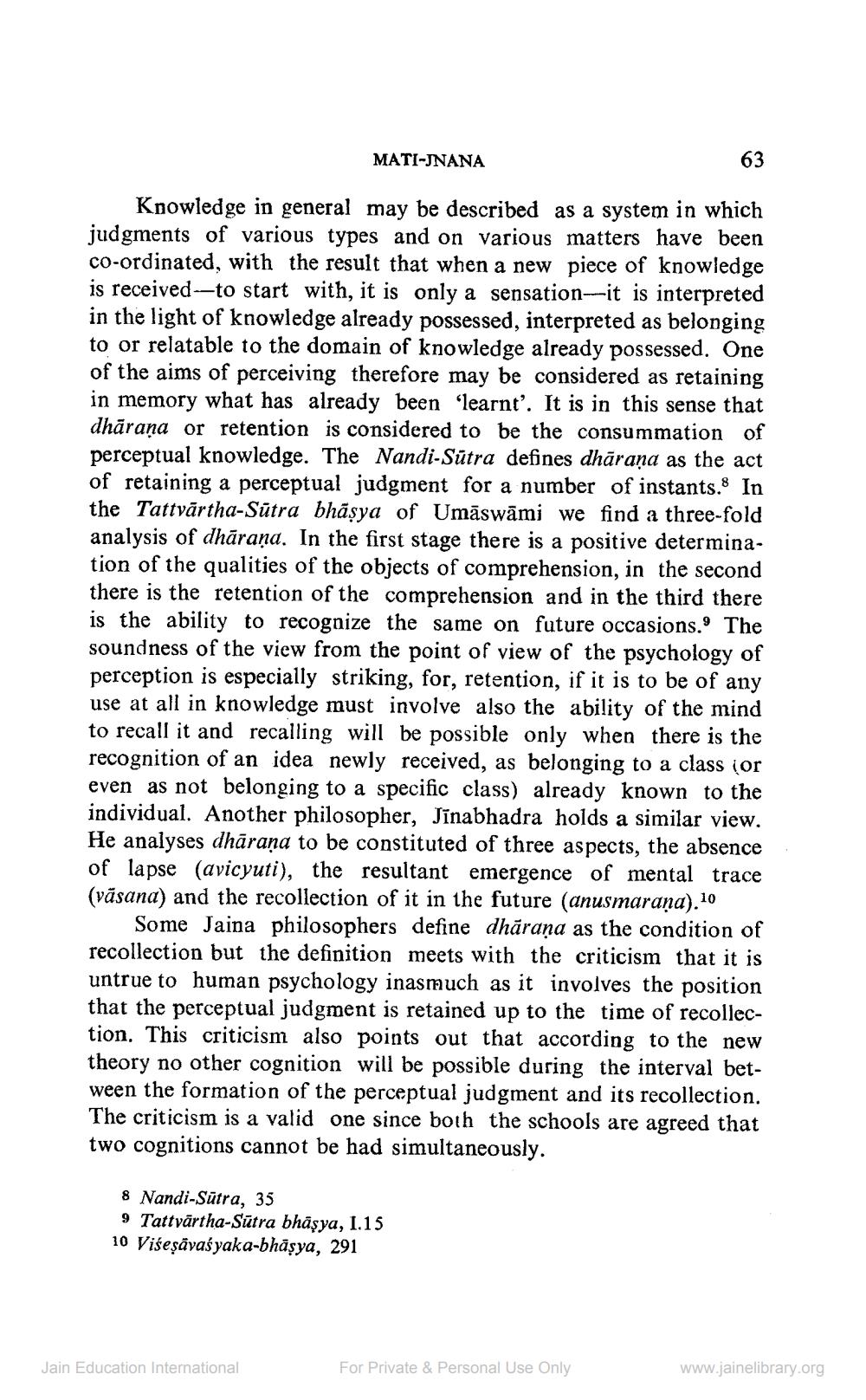________________
MATI-JNANA
Knowledge in general may be described as a system in which judgments of various types and on various matters have been co-ordinated, with the result that when a new piece of knowledge is received-to start with, it is only a sensation-it is interpreted in the light of knowledge already possessed, interpreted as belonging to or relatable to the domain of knowledge already possessed. One of the aims of perceiving therefore may be considered as retaining in memory what has already been 'learnt'. It is in this sense that dhāraṇa or retention is considered to be the consummation of perceptual knowledge. The Nandi-Sutra defines dharana as the act of retaining a perceptual judgment for a number of instants. In the Tattvärtha-Sutra bhāṣya of Umaswami we find a three-fold analysis of dhāraṇa. In the first stage there is a positive determination of the qualities of the objects of comprehension, in the second there is the retention of the comprehension and in the third there is the ability to recognize the same on future occasions. The soundness of the view from the point of view of the psychology of perception is especially striking, for, retention, if it is to be of any use at all in knowledge must involve also the ability of the mind to recall it and recalling will be possible only when there is the recognition of an idea newly received, as belonging to a class (or even as not belonging to a specific class) already known to the individual. Another philosopher, Jinabhadra holds a similar view. He analyses dhāraṇa to be constituted of three aspects, the absence of lapse (avicyuti), the resultant emergence of mental trace (väsana) and the recollection of it in the future (anusmaraṇa).10
Some Jaina philosophers define dharaṇa as the condition of recollection but the definition meets with the criticism that it is untrue to human psychology inasmuch as it involves the position that the perceptual judgment is retained up to the time of recollection. This criticism also points out that according to the new theory no other cognition will be possible during the interval between the formation of the perceptual judgment and its recollection. The criticism is a valid one since both the schools are agreed that two cognitions cannot be had simultaneously.
8 Nandi-Sūtra, 35
9 Tattvärtha-Sutra bhāṣya, 1.15
10 Viseṣavasyaka-bhāṣya, 291
Jain Education International
63
For Private & Personal Use Only
www.jainelibrary.org




